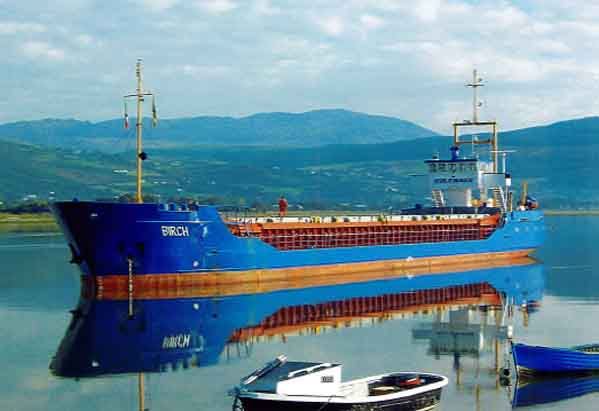Displaying items by tag: North East Coast
Dundalk Port Company
Dundalk Port Company
The Port is owned by Dundalk Port Company and is located on the North East coast of Ireland. It is ideally located as a gateway between Northern Ireland and the Republic of Ireland.
The Port, situated almost exactly halfway between the cities of Belfast and Dublin, enjoys major road connections to both cities via the N1 national primary road. This enables easy transportation of goods to both cities from Dundalk in about an hour.
The port offers a range of services including general cargo handling, pilotage, customs, etc.
Pilotage – Dundalk Port Company also provide a compulsory pilotage service which leads ships up the 8km stretch from the open sea. The Port is serve by a main pilot boat and an auxiliary boat.
Facilities – Ships of up to 3,500 dwt and 106m in length can be handled. Five 30-tonne crawler cranes at minimum radius are capable of discharging up to 160 tonnes per hour each. Ships of upto 3000 tons can be discharged in 12 hours.

About Dundalk Port
Dundalk Port has a long tradition of shipbuilding and registration.
The Port also has a long history of trading in different products with traffic through the port having consisted of gypsum, perlite, sand, peat, salt, scrap, pit props, cattle, fertilizers, machinery, paper, wood and general cargo to name a few.
The First vessel recorded as trading to Dundalk was the Trinitic which sailed from Liverpool to Dundalk in March, 1580. The year 1646 saw a grant of 'perfect freedom of trade' to Dundalk.
The harbour was naturally shallow and was left to its own devices until, in 1721 Lord Limerick, who at that time was high sheriff of Co. Louth, made a deal with the corporation to construct a harbour.
In 1740 he set about the construction of a quay in the form of a pier, extending into the river upstream from the present harbour. In 1767 the Irish Parliament voted £2000 and £400 yearly to improve the harbour. This sum was paid for 8 years and amounted in all to £5,200.
Early in the year 1800 Lord Roden appointed a harbour master and claimed authority over the harbour works. In 1803 the new Custom House was built and there was a military guard placed where goods were stored at the quays.
In 1840 an Act 'for regulating, preserving, improving and maintaining the river, port and harbour of Dundalk"'was passed. Under this act, 27 commissioners were appointed who had certain shipping and property qualifications.
In August 1848 a contract was signed and accepted for the construction of the pile lighthouse. The lighthouse was completed in June 1855. Soon after, in November 1860, a fog signal bell came into operation.
In 1967 work began to convert the lighthouse to electric and unwatched. The new light was exhibited on 17th December, 1968 with an increased intensity to 187,000 candle power in the white sectors. The fog horn signal was established on 25th June 1969.
In 1968 the B&I ended its Dundalk–Newry–Liverpool service. The last four ships on this service were MV Dundalk, MV Inniscarra, MV Wicklow and MV Kilkenny. The B&I compound was sold to the McGinnty family who used the premises for grain warehousing. This premises is now in the hands of Lockingtons Shipping, a subsidiary of Dundalk Port Company.
Towards the latter end of the 20th century, extensive work was carried out on the quays to repair, maintain and extend them to their current status. 220 metres of the current 400 metres of quay wall were just recently constructed in 1992.
In response to the steady rise in port traffic, 2 separate quays were linked with a new 25 metre stretch to form a single long, linear quay.
In 2002 Dundalk Port became a semi state limited company owned by the state. Captain Frank Allen is Chief Executive of Dundalk Port Company.
For a location map, please click here
Dundalk Port Company, 40 Quay Street, Dundalk, Co. Louth. Tel: 00353 (0)42 9334096 • Mobile: 00353 (0)87 2566594 • Fax: 00353 (0)42 9335481 • Email: [email protected]




























































